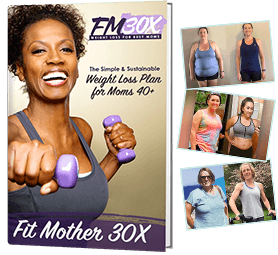If you're worried about consuming too much sugar in your diet, you're not alone, as many people ingest more sugar than they should.
Natural sugar is present in fruits, vegetables, 100% fruit and vegetable juices, milk, and products containing milk as an ingredient. However, the sugar naturally present in whole foods doesn't contribute to many problems linked to added sugar consumption.
It's added sugar you need to watch out for!
Added sugar gets put into foods and drinks during manufacturing to enhance sweetness. It adds unnecessary calories without providing beneficial nutrients, though it gives you a quick energy boost.
Artificial sugar is another thing to watch out for.
Artificial sugar tastes sweet but is calorie-free. It tricks your brain into thinking you're eating real sugar, releasing insulin and ultimately causing low blood sugar levels.
This, in turn, increases hunger, fatigue, and oftentimes irritability. Artificial sugar can boost your cravings for real sugar and the risk of weight gain and diabetes.
Common names for artificial sugar include aspartame, neotame, saccharin, acesulfame, and sucralose.
Keep reading to learn how to adjust your diet to avoid too much sugar and make clean eating your go-to method!
Learn how to recognize sugar addiction symptoms and kick your sugar habit!
Why Too Much Added Sugar Is Bad
Sugar added to food and drinks during processing is the type of sugar you should avoid as much as possible.
Studies show that added sugar is associated with a higher risk of obesity. This, in turn, increases your chance of high blood pressure, high cholesterol, type 2 diabetes, and other chronic conditions.
Additional studies have linked high amounts of added sugar with poor sleep quality, another risk factor for obesity.
Excessive sugar also increases your chance of tooth decay, gum disease, and additional oral health issues. Furthermore, gum disease and heart disease are linked to each other, as having gum disease may double or even triple your chance of having a stroke, heart attack, or other heart problems.
How Much Added Sugar Can I Safely Consume?
While there are no guidelines for natural sugars, you can use these general recommendations to determine if you're eating too much sugar. The Harvard School of Public Health notes that the average person consumes about 17 teaspoons of added sugar daily because of diets rich in highly processed, pre-packaged foods.
Based on the Dietary Guidelines for Americans, people aged 2 and older should limit added sugar to less than 10% of their total calorie needs. This means that if you consume 2,000 calories daily, you should limit calories from added sugar to 200. Since there are 4 calories in a gram of sugar, that means 50 grams daily (12.5 teaspoons). To help you keep track, remember 4 grams of sugar = 1 teaspoon of sugar.
The American Heart Association (AHA) suggests consuming no more than 24 grams of added sugar daily for women, no more than 36 grams of added sugar daily for men, and less than 24 grams daily for kids and teens ages 2-18. They also suggest limiting sugary beverages to no more than 8 ounces per week.
In addition to looking at the grams of added sugar on food labels, another good way to track added sugar in foods is to use the % daily value (%DV) feature on food labels.
Common Names for Added Sugar
When looking at the ingredient list on the nutrition facts labels of your favorite foods, be aware of the following common names for added sugar:
- Corn syrup
- High-fructose corn syrup
- Crystalline Fructose
- Corn sweetener
- Agave nectar
- Brown sugar
- Sugar
- Raw sugar
- Cane crystals
- Cane sugar
- Coconut sugar
- Corn sweetener
- Honey
- Fruit juice concentrates
- Malt sugar
- Invert sugar
- Molasses
- Maple syrup
- Malt syrup
- Dextrose
- Sucrose
- Evaporated cane juice
Food labels provide the number of grams of total sugar, grams of added sugar, and % daily value (DV) for total and added sugars. This makes it simple to determine if you're consuming too much sugar.
Let us show you how you can start losing weight this week! We'll email you our free meal plan & workout + email coaching.GET YOUR FREE
“FIT MOM” JUMPSTART
(MEAL PLAN + WORKOUT)
Foods That Contain Added Sugar
Some foods containing added sugar are obvious, while others may surprise you. Here are some in particular to keep an eye on.
Sugar-Sweetened Drinks
Soda, lemonade, sweet tea, sports drinks, sweetened juice drinks, and sweetened coffee drinks often contain a lot of added sugar. A 12-ounce can of cola contains about 40 grams of added sugar! Diet sodas and other diet drinks aren't much better, as they often contain artificial sugars that are linked with weight gain.
Condiments and Sauces
Many sauces and popular condiments, such as ketchup, barbeque sauce, tomato sauce, honey mustard, teriyaki sauce, and salad dressings, are also sources of excess added sugar. Check the ingredient labels on your favorite condiments, and choose “no sugar added” options or items containing 5% DV added sugar or less per serving.
Sweets and Baked Goods
You probably already know that sweets and baked goods aren't the best for your health, as they're usually loaded with added sugar or refined grains. Limit or avoid desserts, such as ice cream, candy bars, cakes, and sweet bread, as much as possible, or choose healthier alternatives like frozen fruit smoothies and dark chocolate.
Some Canned Foods
Not all canned foods contain excess added sugar, but many contain sodium, sugar, or both. Examples include baked beans, canned soups, and canned fruits packed in syrup.
Flavored Yogurt
Many flavored yogurts contain added sugar as an ingredient. Greek yogurt, especially plain, is often much lower in added sugar than regular yogurt, so choose it whenever possible.
Flavored Dairy Drinks
Flavored dairy drinks, such as chocolate, vanilla, or strawberry milk (or fruit-flavored kefir), are often loaded with added sugar. But that doesn't mean you should avoid milk and kefir, as these beverages contain protein, calcium, and vitamin D. Choose unsweetened milk, plant milk, or plain kefir.
Granola and Protein Bars
Granola, granola bars, and many protein bars are known for containing large amounts of added sugar. While not all these bars are equivalent to sweet treats, many aren't the best option for your health. Choose low-sugar protein bars or granola bars fortified with protein to avoid consuming too much sugar.
Sugar-Sweetened Breakfast Cereals
Many families enjoy cereal or oatmeal for breakfast, but the bad news is that many of these products are packed with added sugar. Look for breakfast cereals without added sugar, choose those containing very small amounts (5% of your DV or less per serving), or pick unflavored oatmeal.
Diet Foods and Drinks
Many diet sodas, sugar-free sweet drinks, sugar-free candy, and other foods contain artificial sugars, which aren't better for your body than added sugar.
Learn the TRUTH about artificial sweeteners!
Erin Coleman is a registered and licensed dietitian with over 15 years of freelance writing experience. She graduated with her Bachelor of Science degree in nutritional science from the University of Wisconsin-Madison, and completed her dietetic internship at Viterbo University in La Crosse, Wisconsin. Prior to beginning her career in medical content writing, Erin worked as Health Educator for the University of Wisconsin-Madison Department of Internal Medicine. Her published work appears on hundreds of health and fitness websites, and she’s currently working on publishing her first book! Erin is a wife, and a Mom to two beautiful children.
Fit Mother Project is the answer you’ve been looking for. Inside the program, you’ll receive: Our Fit Mother 30X Program (FM30X) is the answer you’ve been looking for. Inside FM30X, you’ll receive: The FOUNDATIONS Program is created by Dr. Anthony Balduzzi for Women 40+ who want Lifelong Health. In just 6-Weeks following FOUNDATIONS, you'll experience: FOUNDATIONS has transformed 60,000 lives! Are you ready to experience true lasting health & results?If you’re a busy mom who wants to finally lose weight,
get healthy, and actually keep the pounds off for good,
this is the simple program you’ll love sticking to…
If you’re a busy mom who wants to finally lose weight,
get healthy, and actually keep the pounds off for good,
this is the simple program you’ll love sticking to…
LEARN MORE ABOUT FM30X »

Learn More About FM30X

Join our 6-Week Doctor Designed Health Program.
You'll Gain Foundational Health for the Rest of Life.
*Please know that weight loss results & health changes/improvements vary from individual to individual; you may not achieve similar results. Always consult with your doctor before making health decisions. This is not medical advice – simply very well-researched info on how much sugar is too much.











